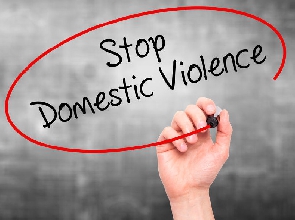The United Kingdom's (UK) Department of International Development (DFID) has reiterated its commitment to becoming a global leader in efforts to eradicate Violence Against Women and Girls (VAWG) in all forms.
Mrs Enyonam Azumah, the DFID Ghana Deputy Team Lead for Social Sectors, said eradicating VAWG was key in the organisation’s new Strategic Vision on Gender Equality.
She said the Foreign and Commonwealth Office's (FCO's) Special Envoy for Gender Equality had made a commitment to ensure a foreign policy that focused on three themes to achieve gender equality - equal, safe and empowered.
She said the commitment to ensuring everyone was equal, safe and empowered aligned with President Nana Addo Dankwa Akufo-Addo's vision to creating a Ghana where all citizens were able to actively participate and contribute towards the socio-economic development of the country to create a self-reliant and prosperous Ghana Beyond Aid.
Mrs Azumah said this in Accra at a stakeholders dissemination workshop dubbed: "What Works to Prevent VAWG – Economic and Social Costs of Violence Against Women and Girls".
She said Violence Against Women and Girls occurred in all parts of the world and in all societies and remained one of the most systematic widespread human rights violations worldwide.
She noted that research showed that one in three women had suffered violence in her lifetime with abusers generally being members of the family.
Mrs Azumah said women were predominantly victims of Intimate Partner Violence (IPV) at a rate of around five times more than males.
She said for children exposed to IPV, the long-term health and social consequences were similar to those of child abuse and neglect.
The DFID’s work typically provides support to women’s rights organisations; tackles the attitudes that normalise violent behaviour; and gets comprehensive services to survivours.
She said it also ensured that national legislation and policies were in place and implemented. “We conduct rigorous research to produce evidence on What Works to prevent VAWG”.
Mrs Azumah said the study showed that domestic violence had ripple effects throughout the community and was not contained within the four walls of the home, adding that: "No such analysis has previously been carried out in Ghana, or indeed elsewhere in West Africa".
She said the impact of the Ghana study might be significant in breaking new grounds in understanding the impact of VAWG, such as on the physical and mental health of individuals, community cohesion, economic stability and development in order to provide further evidence for government to accelerate efforts to address VAWG.
"Failure to eliminate VAWG constitutes a nag on the national economy and on inclusive human development. There is strong incentive for investment by the government and other stakeholders to address VAWG as the cost of inaction may be significant," Mrs Azumah stated.
Madam Malonin Asibi, the Director of the Domestic Violence Secretariat of the Ministry of Gender, Children and Social Protection, said: “VAWG undermines the quality of life for families and the well-being of children, which has long-term consequences for our social life”.
Professor Felix Asante, the Director, ISSER, University of Ghana, and the Project Co-Principal Investigator, said: “This research underscores the importance of understanding the economic impacts of violence against women and its serious consequences for the wider economy.”
Dr Nata Duvvury, the National University of Ireland, Galway, and Overall Principal Investigator said: “The research lays in simple terms the heavy burden that VAWG places on economic activity in any country.”
At the event, a study report by the Institute of Statistical, Social and Economic Research (ISSER) of the University of Ghana dubbed: "Economic and Social Costs of VAWG in Ghana" was launched by Madam Asibi.
The project, funded by the DFID, forms part of its global “What Works to Prevent VAWG Programme,” found that violence against women placed a significant burden on women and their families.
Aside Ghana, the DFID is also funding similar research projects in Pakistan and South Sudan (2014-2019).
General News of Friday, 19 April 2019
Source: ghananewsagency.org
DFID reiterates commitment to eradicating violence against women
Entertainment
















